
What is Drug Addiction?
As per the National Institute of Drug Abuse, addiction is defined as a chronic, relapsing brain disease in which a person shows characteristic features like compulsive drug seeking and unusual behavior, despite knowing the dangerous and harmful consequences of using these drugs.
In the US alone, 8-10% of people above the age of 12, amounting to nearly 22 million people, have been found to be addicted to alcohol or any other illicit drug.
Addiction is considered a brain disease because the use of illicit drugs changes brain in several ways. It modifies the brain structure and the way in which it functions. These changes are long lasting and can make a person to indulge in several dangerous and self-destroying behaviors.
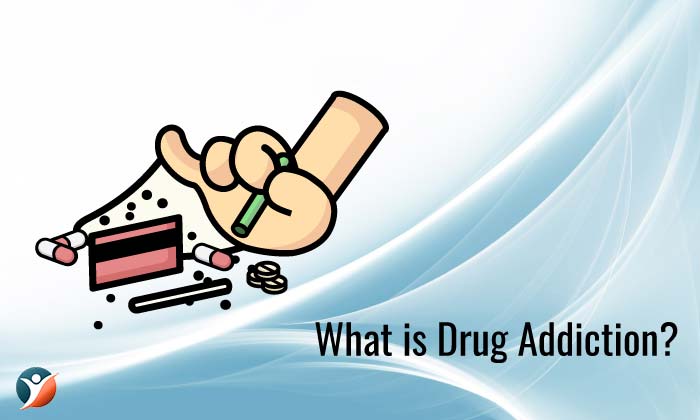
Table of Contents
- Why people Become Addicts?
- Addiction: A mental disease
- A Peak into the Science of Addiction
- Overcoming Addiction
- Understanding the Neuroscience of Need
- The Feel-Good Brain Chemical Called Dopamine
- Mechanism of Opiate Addiction: Different from Other Drugs?
- Factors responsible for Addiction
- Knowing to Seek Help
Why people Become Addicts?
People can start abusing drugs and become addicts quite early in their life. Lack of authority, emotional trauma, added influence of predisposition can often push people towards drug abuse. It is not easy to discover why a person starts abusing drugs. It is equally difficult to treat and overcome the disease of addiction.
There are a few people who think that drug addiction is a self-explanatory thing. They believe that that anyone who abuses drugs or becomes an addict does so because of his own choice. While in most of the cases, choice does define the initial actions, the body then responds to these poor initial choices in a much demanding way. The body allows the addiction to grow and take control of the person’s mind, character, choices and their body on whole. All it takes is one wrong decision and bam! a person’s life is put at stake. The doors of addiction become wide open.
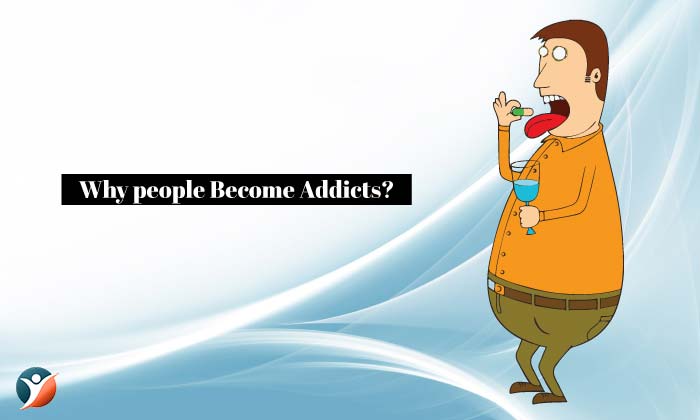
Addiction is a disease
The term disease is defined as a condition where the proper functioning of an organ gets altered and this is exactly what happens in case of any form of addiction. In case of addiction the entire wiring of brain gets altered at chemical as well as the physiological level. That is why addiction qualifies to be included in the list of mental health diseases.
Addiction can be cured in most of the cases and there are several evidence-based treatment methods available that are effective in managing the illness.
Like any other chronic disease, addiction too requires ongoing treatment comprised of therapy, medicines and lifestyle changes. Once a person recovers from addiction, he can live a fulfilling and healthy life.
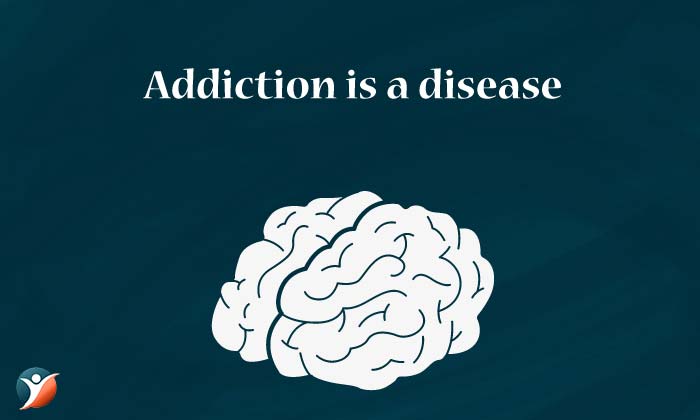
A Peak into the Science of Addiction
Humans have an over-developed frontal cortex that gives them a power to choose their response. However, people who develop addiction are stripped of this power and therefore cannot live life the way they want to.
A person addicted to alcohol has an improperly functioning pre-frontal cortex. This part of brain is involved in ascertaining the execution function performed by a person. There are a number of functions performed by this part of the brain, delaying reward and self-monitoring being some of them. It also determines how a person is going to behave when the illicit drugs are not made available to the body. The most commonly observed response is an aggravated negative emotion as well as despair. The use of drugs floods the brain with neurotransmitters like dopamine which make the brain rather insensitive to other sources of happiness and pleasures like chatting with a friend or experiencing a beautiful sunset.
Understanding the science behind addiction helps in devising treatment methods. Agonist medicines like buprenorphine and methadone can be used for feeding the craving while the reasoning and planning functions of the brain are restored during deaddiction process.
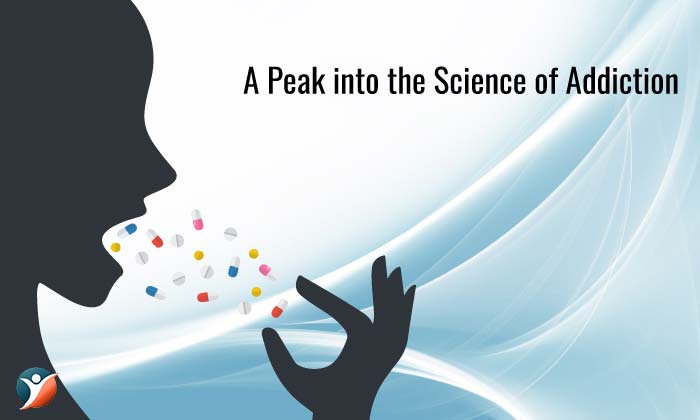
Understanding the Neuroscience of Need
In the last 10 to 15 years, a major shift has been observed in the way addiction is perceived in society as well as in the world of medicine. What was earlier perceived as a character and moral flaw is now seen as a maladaptive form of learning. It is something that cannot be unlearned easily.
As per Keith Humphreys, a professor at the Stanford University and a senior White House drug-policy adviser, addiction and weight loss have many parallelisms. As body adjusts to the increased weight, it becomes increasingly difficult to lose weight. In the similar ways, an addicted brain undergoes changes that are long enduring and therefore many people relapse to using drugs, thereby prolonging the treatment. [1]
Addictive drugs kindle the natural reward system by stimulating the natural reward circuit, which is the main reason for enjoyment and leads to addiction. Drugs are a step ahead of the natural rewards like food and sex, and stimulate the reward system so violently that it is difficult for the person to stay away from it. The need becomes so high that it does not just remain a matter of pleasure. By the time the excitement fades away, certain key regions of the brain have already developed long lasting changes in them. [2]
Today addiction is not just seen from the point of view of withdrawal symptoms alone, but is understood in the form of neurophysiological changes occurring in the brain. An addict person is drawn towards drugs like a moth to flame, despite knowing what harms it is doing to its body because the whole brain has become rewired. Such is the extent of reprogramming that if the person does not get the drug, his brain will make him feel rotten.
These symptoms are not due to weak will power but due to a brain disease. Addiction is rather a consequence of behavioral changes that lead to changes in neurons of brain due to being exposed to drugs. With time, these subcellular changes alter critical connections in the brain, especially pushing the casual want for drugs into a vicious craving. The trigger factors for craving can vary from drugs to environmental factors, place, people and situations that can give rise to craving even after being clean for several years.
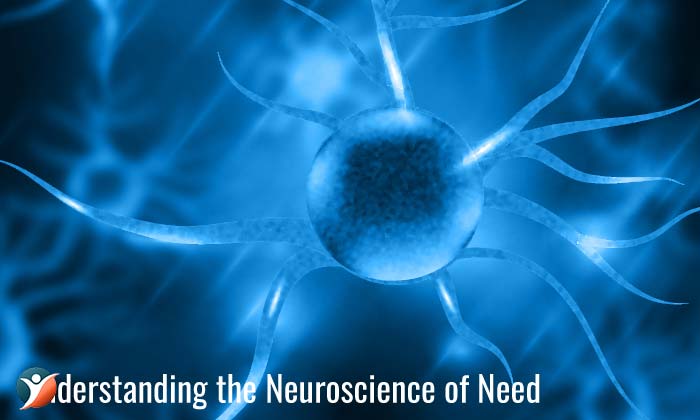
The Feel-Good Brain Chemical Called Dopamine
Dopamine is a chemical produced by the brain cells or neurons, for transmitting information from one cell to the other. This chemical stimulates the reward center of the brain.
As per a study done on mice to understand addiction, it was found that after being exposed to addicting drugs, mice were willing to undergo a series of pain and physical labor to get a single dose. Such strong is the compulsive behavior emanating from use of drugs.
This is what happens with all the abused substances, nicotine, amphetamines and alcohol. They interfere with the working of reward center in the brain. They do so by stimulating the release of dopamine from the target structures which is mainly responsible for pleasure.
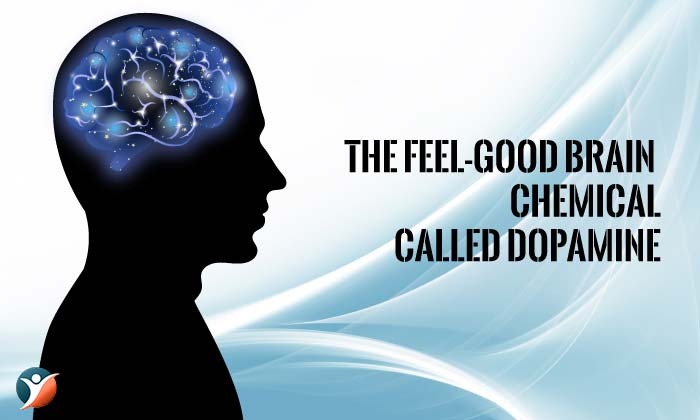
Mechanism of Opiate Addiction: Different from Other Drugs?
It has been observed that chronic exposure of morphine produces opposite effect in the brain as compared to other drugs. There is a protein, known as brain-derived neurotrophic factor (BDNF), which is found in abundance in cocaine addicts, is rather hampered in opiate addicts.
BDNF is known to react in the exact opposite way when opiates are administered as compared to administration of cocaine. Morphine is known to create reward by increasing the activity of BDNF. BDNF is responsible for performing several functions in the brain like increasing the survival rates of brain cells.
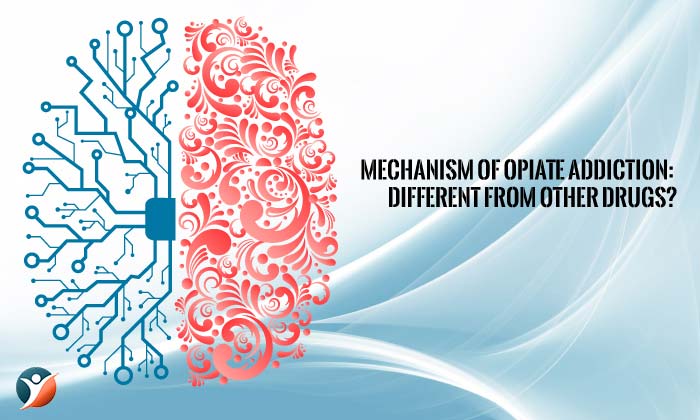
Factors responsible for Addiction
Here are some of the factors responsible for facilitating addiction in people:
1. Genetics:
Our genetic makeup is responsible for determining who we are and how we look. It dictates whether we are more likely to produce twins or not. In the same way, addiction, too, is a disease, whose likeliness is also determined through our genes. Addiction can be inherited and can travel within generations. Although, being genetically predisposed to addiction does not mean that a person is going to develop addiction. It just determines how your body is going to react when introduced to alcohol, nicotine and other substances of abuse.
Having a genetic predisposition to addiction means that it would be difficult to stop yourself from falling into the trap of substance abuse. Treatment plans for such people is same as that for other people but the alarming thing is that in these people the level of tolerance is particularly high. Therefore, they need higher doses to get the famous ‘high’ which exposes their bodies to higher levels of drugs. As a result, there are more chances of permanent damage and death in such people.
Long term treatment is best for treating people in whom genetic factors are thought to play a role. Long treatment plans will help them in leading a sober life that might be absent in such people.
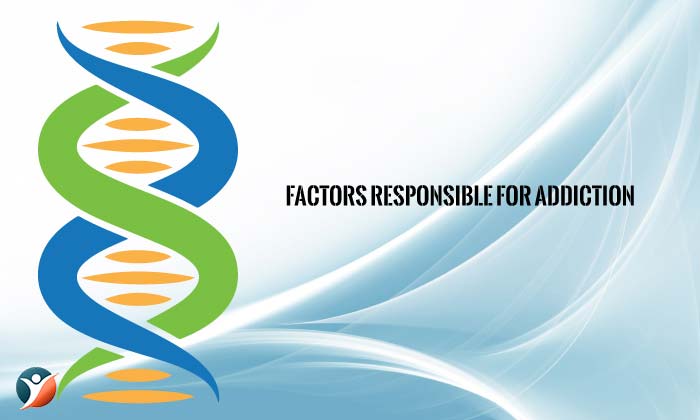
2. Mental Health:
Many people might think that addiction and mental diseases are two different things, they often go hand in hand. If there is a debilitating mental problem, it might direct a person towards addiction. Mental diseases often try to hide behind addiction and go undetected.
Those people who suffer from mental illness like anxiety, OCD, depression or schizophrenia are extremely prone to develop addiction to drugs or alcohol as they try to self-medicate for their illness. While using alcohol or drugs, there is a sense of false belief of wellness but the truth is, use of illicit drugs further worsens the situation when addiction sets in giving rise to an unbreakable cycle. Gradually dependence develops and tolerance gets a new pal. Dependence and tolerance together contribute to a number of stresses that are felt by the user when the substance of abuse is not made available to him. The use of drugs and alcohol provides a false sense of relief from the symptoms of mental anguish, but as addiction sets in, drugs cause mental health problems to worsen and a cycle begins. Tolerance and dependence make the addiction contribute to the stresses they felt would be diminished by the use.
Therefore, it is important to determine what is the underlying cause of addiction. If a mental illness is hiding behind addiction, it is extremely important to treat it first.
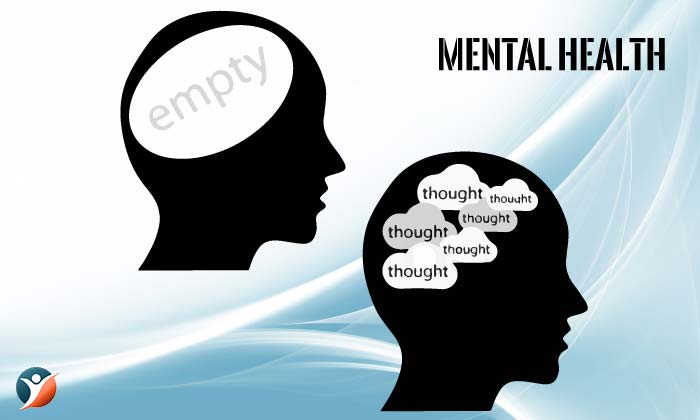
3. Societal Influence:
Sometimes, it has been seen that addiction stems from a person’s poor choices emanating from the environment they live in, people they associate themselves with and their lifestyles. Every individual has a different response to environmental stimuli. For example, peer pressure might not be actually responsible for making a person abuse drugs but having friends who party hard and abuse drugs on a regular basis might prompt a person to try it for one and ultimately fall in the pit of drug addiction.
In scientific terms, when a person remains in the close proximity of a society that regularly abuses drugs, his chances of following the same path are extremely high. Binge use of such drugs at a high frequency ultimately guides the body to develop new levels of tolerance and dependence which gradually closes all doors of recovery.
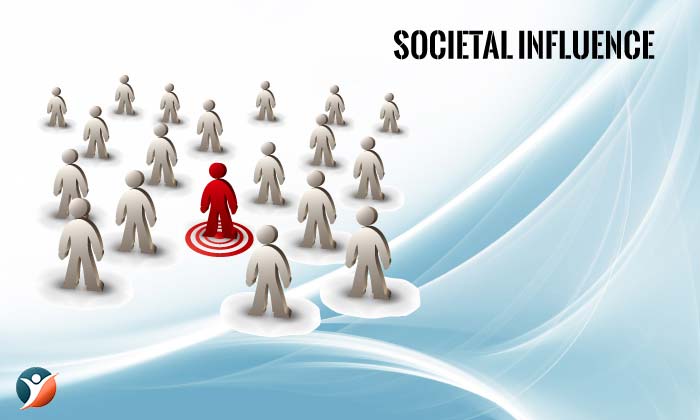
4. Brain & Body:
Drugs interfere with the communication channels within the brain which disturbs the balance of neurotransmitters. This causes the brain to receive abnormal messages which causes further damage. These false messages are responsible for making a person feel a ‘high’ when on these drugs. With time, the body starts to grow acclimatized to the substance and higher doses are then required to get the same high. This starts a cycle in which, higher the intake of drugs, higher is the need and subsequently higher is the tolerance.
Addiction soon becomes something that not only has a mental need but has physical requirements as well. Drugs that leave the body create a sickness that can only be cured by taking more drugs. This is the main hindrance in the path of complete treatment.
Addiction can result in several serious health conditions like tremors, heart problems, infections, aches and pains that can continue to haunt the addict lifelong. Apart from the physical worries, addicted people undergo permanent changes in their brain that can never be reversed. These changes alter the way in which a person responds to emotions.
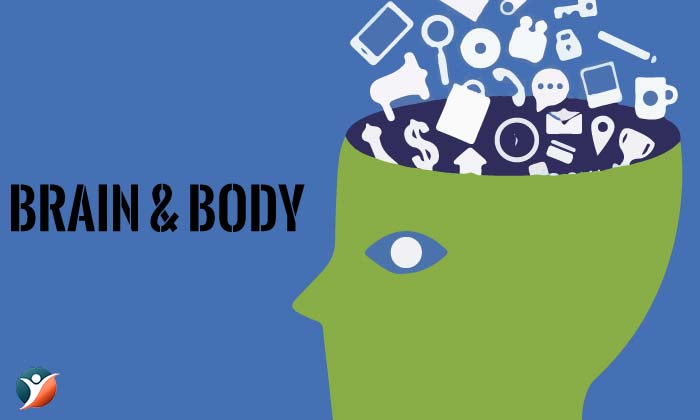
Overcoming Addiction
Many people think that a strong will power is enough to come out of addiction, but a simple no is just not enough.
Alternate sources of reward and joy need to be developed for the addicted person.
He also needs to get back in the social setting and get rid of his isolating behavior.
People with mild symptoms of addiction can come out of it with a strong will power. But, as the severity of addiction increases, the chances of coming out from it merely with strong will power decreases.
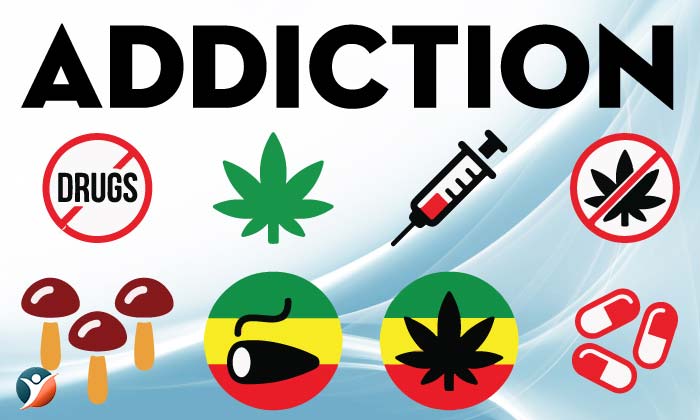
Knowing to Seek Help:
When you discover that someone is falling in the pit of addiction, it is important to make them aware of the dangers they are putting their lives in. Family and friends of the addict must also be educated about the condition of the addict. They should be made to understand that the patient is not acting out of habit or has a weak will power. But, it is his brain that is forcing him to act in this way. His brain is unable to process the information the way it is meant to do it as the entire wiring has been disrupted.
Therefore, it is the job of friends and family to take the right steps for the addict and save his life.




